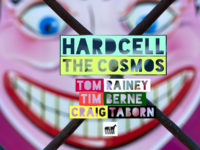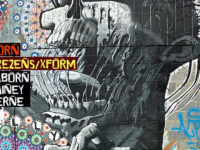feature photo: Tim Berne
Craig Taborn enjoys a reputation as being one of the most in-demand pianist/keyboardists in the realm of modern and cutting edge jazz of the last fifteen or so years. He’s showed up in this space innumerable times as a sideman and leader on so many quality jazz records that push against the genre’s boundaries and expectations.
Relatively early in his career, Taborn made a record that also broke against convention and explored not what jazz had been but what it could be in the 21st century. Junk Magic probed new territory, combining modern jazz with contemporary sounds like broken beat, indie rock, synth funk and prog rock with an avant-garde bent, resulting an alchemy that’s really not easily classifiable. Aaron Parks, Chris Potter, Donny McCaslin and others have done this too, but Taborn beat them all to this idea; Junk Magic was released in 2004.
Since then, Taborn has participated in some ambitious projects with anyone from David Torn to Roscoe Mitchell, but the handful of records under his own name during this time didn’t venture down that electro-acoustic vanguard path again. Until now.
After a 16-year break, Taborn is returning to ideas he first put forth in 2004, and despite the long layover, he means business. Compass Confusion, as it’s called, isn’t just the follow-up to Junk Magic, it’s credited to the whole band, which he named…Junk Magic.
This band brings back most of the personnel from the first Junk Magic album: David King on drums and Mat Maneri on viola. Aaron Stewart is replaced by Chis Speed on reeds and a bass player Erik Fratzke is added. But this remains Taborn’s conception, and his total embrace of electronics and the inventive way he applies it is a central ingredient in this stew. The other crucial element is that the music is composed but brought to life by heavy doses of improvisation. Taborn offers, “you’re working on things in the moment.”
It certainly sounds that way. The seven tracks that make up Compass Confusion is fueled by esoteric complexion, mood and impulse, not so much structure or sharply defined forms. “Laser Beaming Hearts” is an intricate weave of digital textures, layers and a harmonic structure not too far off what’s heard from Tim Berne, especially his early 2000’s Science Friction band that Taborn was a part of.
“Dream and Guess” is a dreamy soundscape that washes over in waves, Maneri’s lonesome viola making communion with the synthetic sounds coming from Taborn’s arsenal. “Compass Confusion/Little Love Gods” is unsettled ambience, a ringing sonority and insistently pulsing synth notes that veers toward minimalism. Speed’s sax maneuvering around Maneri’s viola opens up a human phase of the song, subtly pushed along by King’s brush patters.
“The Science Of Why Devils Smell Like Sulfur” is essentially acoustic nearly-free jazz with some electro accoutrements tossed in though that’s not a complaint; everyone here is right at home in that sort of setting. But somewhere in the middle, the song settles into a vamp that is so clinically repeated, it could be mistaken for looping (it isn’t). Maneri doesn’t let go of the highly improv feeling of the initial phase, however, and the band largely backs away for a short feature by King that serves as a segue into a drawn out release.
“Sargasso” is an amalgamation of foreboding, odd sounds and even the sax and viola unisons feel alien in this otherworldly environment. At some point King’s electronic drums arrive to mete out unbalanced beats.
Taborn plays a pattern of pulsating organ chords for “Sunsets Forever” as King is the lone improvisor here, letting loose rumbles in the background that provides contrast to the diffusive
textures without breaking it up.
Progressive music has moved more and more in the direction suggested long ago by Junk Magic but as Craig Taborn revisits these ideas with Compass Confusion, it’s clear that his Junk Magic project remains uniquely creative in this increasingly crowded field.
Compass Confusion is set for release on October 30, 2020 from Pyroclastic Records.




